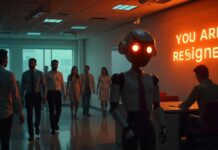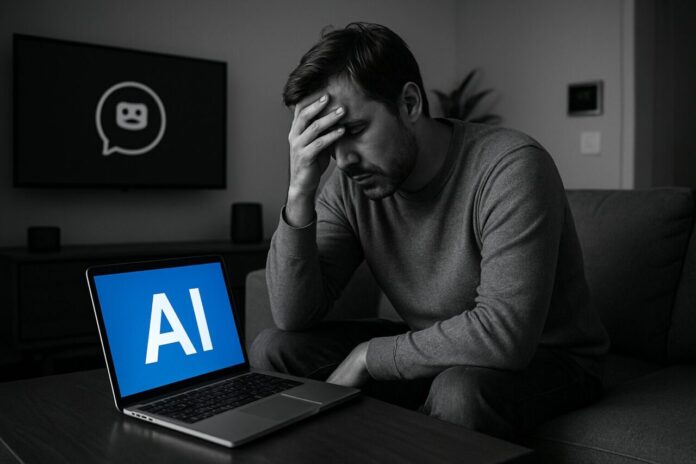
The year 2030 is not far away. Just a few short years stand between us and a world that looks very different from today. Technology will be faster, smarter, and everywhere.
However, behind the glowing screens and promises of progress, a darker picture begins to form.
Namely, humans evolved to live in groups, to hunt, to farm, to create, and to love. But instead of thriving in natural communities, we are slowly moving into a world where life is reduced to screens, algorithms, and digital copies of ourselves.
We are told this is “progress.” We are told it will make life easier. But will it make life better?
The signs are not encouraging. From collapsing social bonds to the rise of loneliness, from artificial superfoods to brain implants, the coming decade may not feel like a golden age of innovation.
It may instead feel like the opening chapters of a full-fledged digital dystopia — one where people are connected to everything, yet more isolated than ever.
This article looks at what Earth in 2030 could become — not the polished future we see in glossy tech ads, but the unsettling reality beneath.
What if the future isn’t about human progress at all, but about humans adjusting themselves to fit machines?
People Will Become Dumber
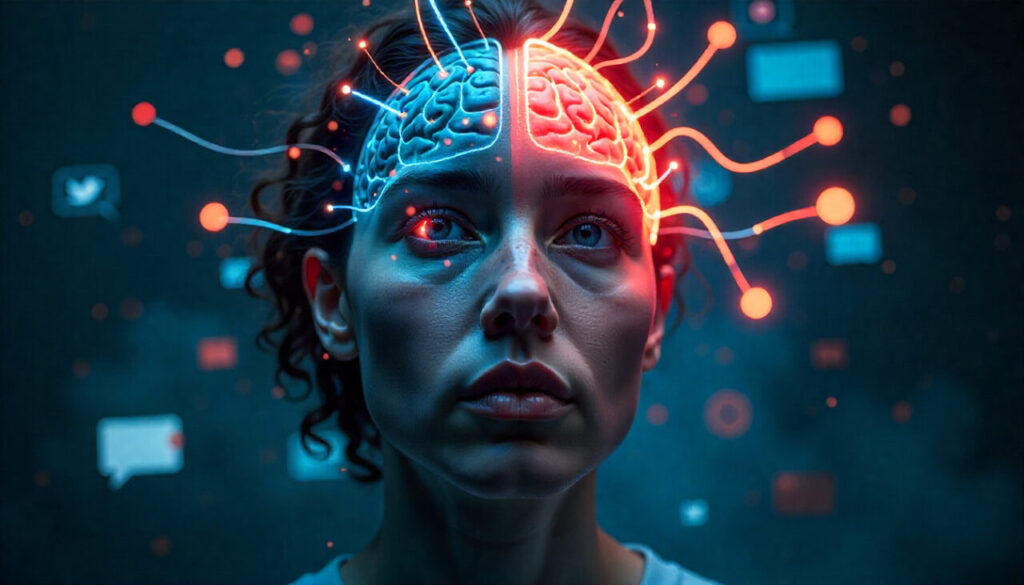
You know what’s ironic? The smarter our technology gets, the less we seem to think for ourselves. AI is everywhere—predicting our needs, finishing sentences, even making decisions that used to belong solely to our brains.
It’s convenient, sure, but it’s also a little terrifying. By 2030, there’s a real risk that humans could start outsourcing so much thinking to machines that our own critical thinking and problem-solving abilities shrink.
Over-reliance on AI tools—like smart assistants, automated writing programs, or predictive algorithms—can create cognitive laziness. Studies already show a decline in memory retention and decision-making when people rely heavily on technology to do the thinking for them.
Some researchers even call it “AI apathy,” where humans gradually lose interest in thinking deeply because AI does it faster, better, and more efficiently.
Think about it: when was the last time you remembered a phone number, calculated a tip in your head, or figured out a route without Google Maps?
Our brains are already outsourcing countless tiny tasks. By 2030, these little conveniences could snowball into a noticeable decline in general cognitive sharpness.
This doesn’t mean we’ll all turn into zombies, of course. But our mental muscles will atrophy unless we make a conscious effort to exercise them.
Interesting fact: Some schools are experimenting with “digital fasting,” where students avoid digital tools for a week to strengthen memory and problem-solving skills. Early results show improved focus and cognitive resilience.
Homes That Think for Themselves
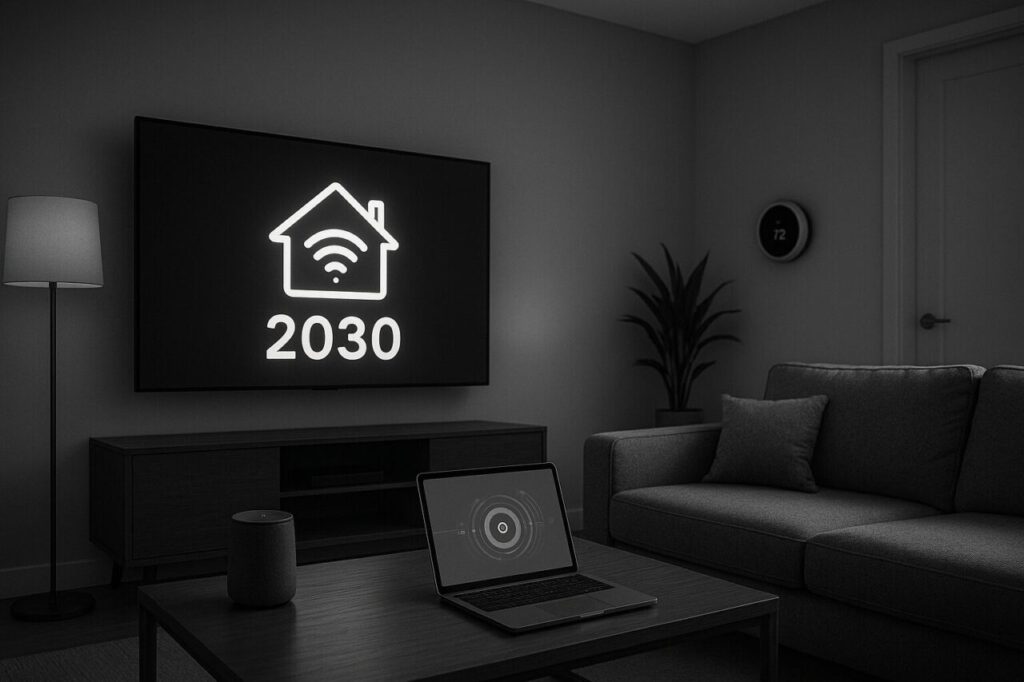
By 2030, in rich countries, many homes won’t just be smart—they’ll practically run themselves. Imagine a house that knows your schedule, anticipates your moods, and adjusts everything automatically.
Lights will shift color depending on your energy level. Refrigerators will restock themselves. Thermostats will adjust based on your body temperature, weather, and even your sleep cycle.
Yeah, its weird but many people will choose that kind of comfort.
Yet, there’s a catch: as houses get smarter, they become targets for hackers. A fully connected home will need as much digital protection as a bank; otherwise intruders could access not just your Wi-Fi, but your entire living environment.
And think about how this might change daily life. Imagine returning from work to a living room lit in calming hues, your favorite playlist starting automatically, and a meal ready to eat—all without touching a single button.
It’s luxurious, but also a little unsettling: if homes are making decisions for you, where does personal choice end and automation begin?
Interesting fact: By 2030, some prototypes are already exploring homes that generate energy from human activity, such as footsteps or heat from electronics, turning daily life into a small power plant.
Synthetic Superfoods
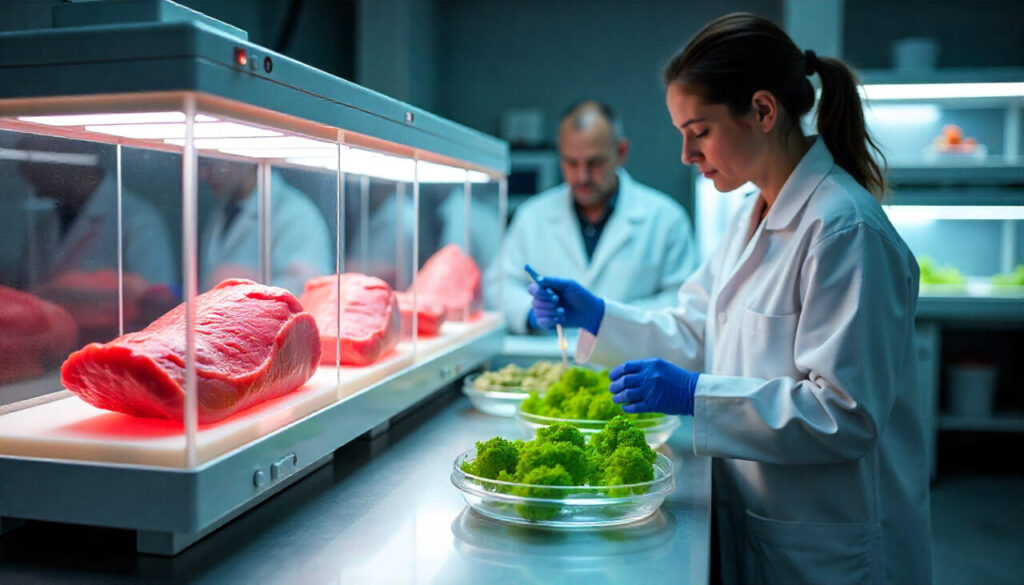
The global population is still on the rise, and climate change is affecting agriculture. Therefore, Lab-grown proteins, algae snacks, and precision-fermented nutrients could dominate diets in many rich countries by 2030.
Personalized nutrition might optimize health based on DNA, offering exactly what each body needs.
Synthetic superfoods promise sustainability and efficiency, but they also challenge our perceptions of what “real” food is.
Interesting fact: Some algae-based foods contain more protein than beef while producing virtually no greenhouse gases, making them a surprisingly tasty eco-alternative.
Brain Implants
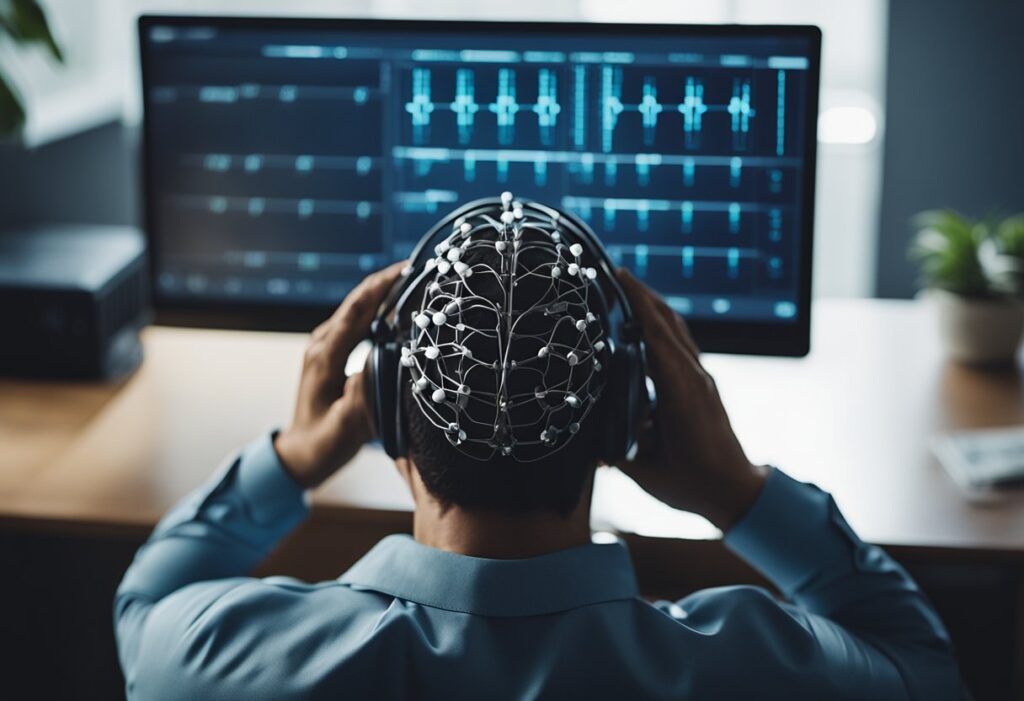
By 2030, brain-computer interfaces (BCIs) may become standard for rich people. Neuralink and similar companies are already pioneering these technologies.
However, this progress comes with its ownethical dilemmas. Privacy, consent, and even cognitive manipulation will become huge societal issues. The merging of minds and machines might redefine what it means to be human.
Think about education and work: imagine uploading knowledge directly to your brain, or connecting multiple minds to solve a problem collaboratively in real-time.
It’s incredible, but also raises questions about individuality and free will.
Interesting fact: Some BCIs have already enabled users to control robotic arms and cursors with their minds alone, hinting at near-future possibilities for direct brain-to-brain or brain-to-machine communication.
Sexuality in 2030
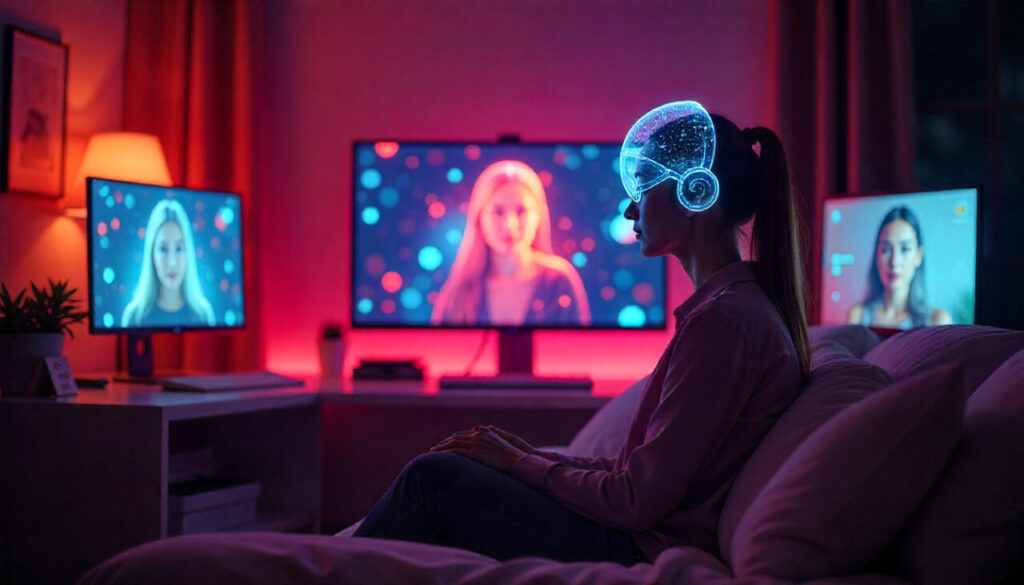
Virtual intimacy, AI companions, and online platforms will reduce traditional physical relationships. Experts predict sexual activity could reach historic lows, while emotional connection and consent take center stage.
This shift may redefine intimacy altogether, placing mental and emotional bonds above physical presence. Society will need to navigate these changes thoughtfully, balancing technology with human need.
Interestingly, the shift isn’t necessarily bad. Emotional literacy, empathy, and intentional intimacy may become far more important than mere physical interaction.
By 2030, the concept of human connection could expand in ways we haven’t fully understand yet.
Third of the World Will Have Digital Clones
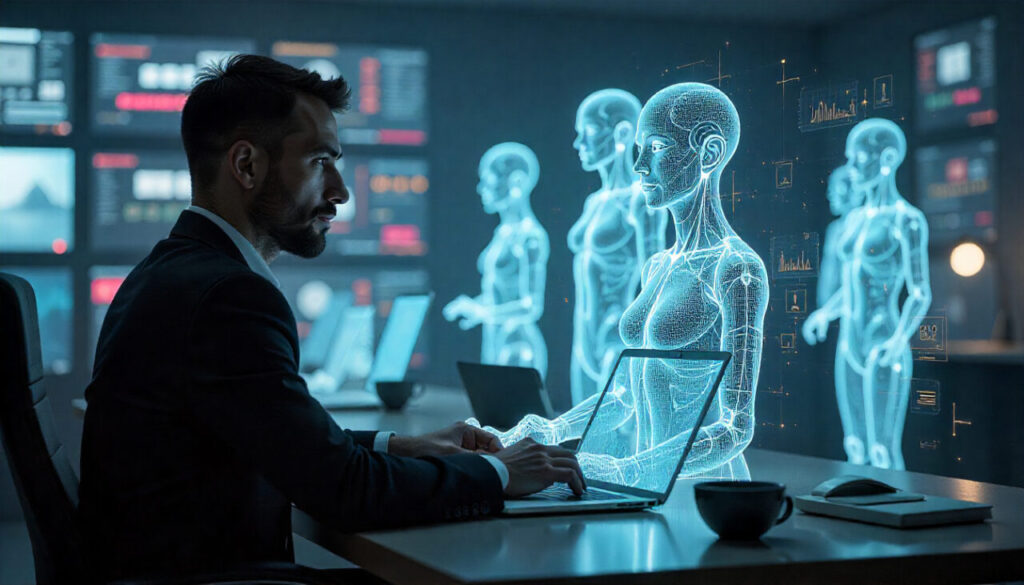
By 2030, almost 30% of people may own a digital clone—a virtual version of themselves powered by AI. These clones could work, negotiate, or even socialize on behalf of their human owner.
Imagine sending your clone to a boring meeting or letting it answer your emails.
Digital clones may help people achieve more, but they could also create even more identity problems. If your clone acts badly, are you responsible? If someone hacks your clone, could they ruin your reputation?
Based on that, relationships will also change. People could fall in love with digital versions of each other, never meeting the real person.
Unfortunately, the line between human and digital identity will blur completely for many people.
Interesting fact: Some companies are already building “AI avatars” that mimic people’s personalities based on chat history and online posts.
Depression Reaches Ultra High Levels

By 2030, depression may become the most common illness in the world. With rising loneliness, digital addiction, and stressful economic changes, mental health could hit rock bottom.
Many people may feel lost in a world dominated by screens and machines.
Traditional therapy may not keep up with the scale of the problem. AI-driven mental health apps might replace human therapists, but these may feel cold and impersonal.
The stigma around mental illness could shrink, but the numbers suffering could explode.
Depression might also harm economies. Sick, unmotivated workers could lower productivity, creating a cycle of stress and burnout.
Interesting fact: The World Health Organization already predicts that by 2030, depression will be the leading cause of disease burden worldwide.
First Full Consciousness Uploaded to the Cloud
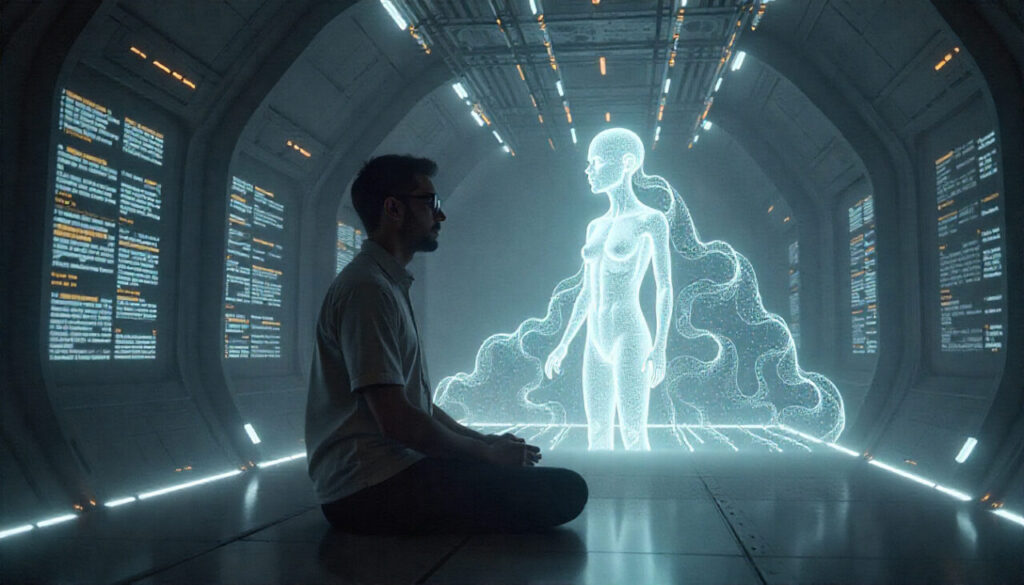
By 2030, we might see the first complete human consciousness uploaded into the cloud. This would mean a person’s thoughts, memories, and personality living entirely inside a computer.
This achievement could make humans effectively immortal—living forever as digital beings. But it would also bring huge ethical questions. Is the uploaded version still “you”? Or just a copy?
Some people may volunteer to upload, while others may see it as the end of humanity. If minds can exist without bodies, life and death may no longer mean what they once did.
Interesting fact: A Russian project called 2045 Initiative already aims to achieve digital immortality by the middle of the century.
Colleges Going Bankrupt
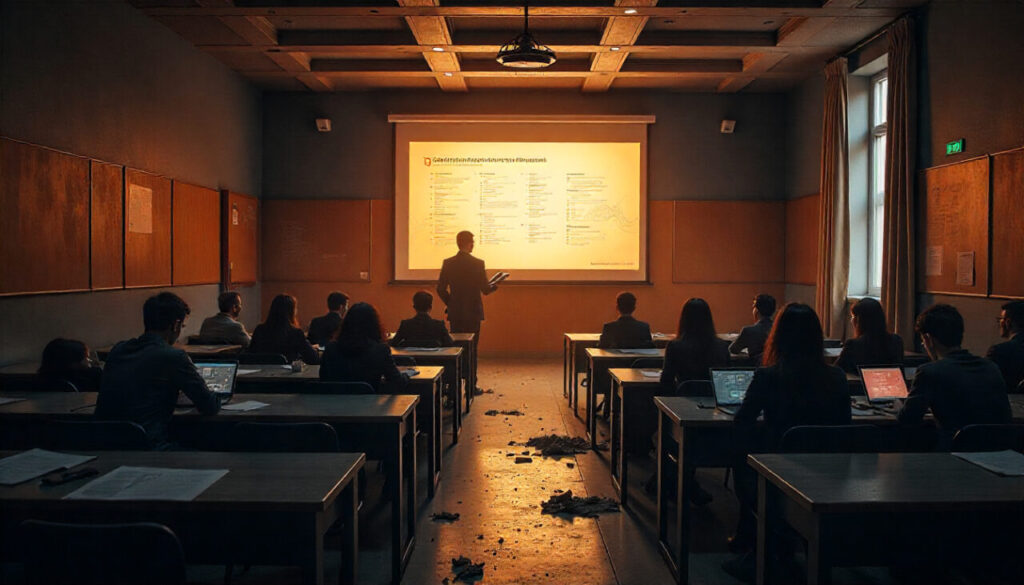
By 2030, many colleges could start going bankrupt. With free online courses, AI tutors, and digital universities, fewer students may want to pay high tuition fees. The traditional four-year degree might lose its value.
Instead, people may choose faster, cheaper certifications that teach exactly what they need for a job. Big companies might even create their own training systems, replacing universities altogether.
This shift could make education more accessible but also destroy centuries-old institutions. Only the most elite schools may survive, while thousands of smaller ones shut down.
Interesting fact: In the U.S., hundreds of small colleges are already closing or merging due to falling student numbers.
Loneliness Peaks
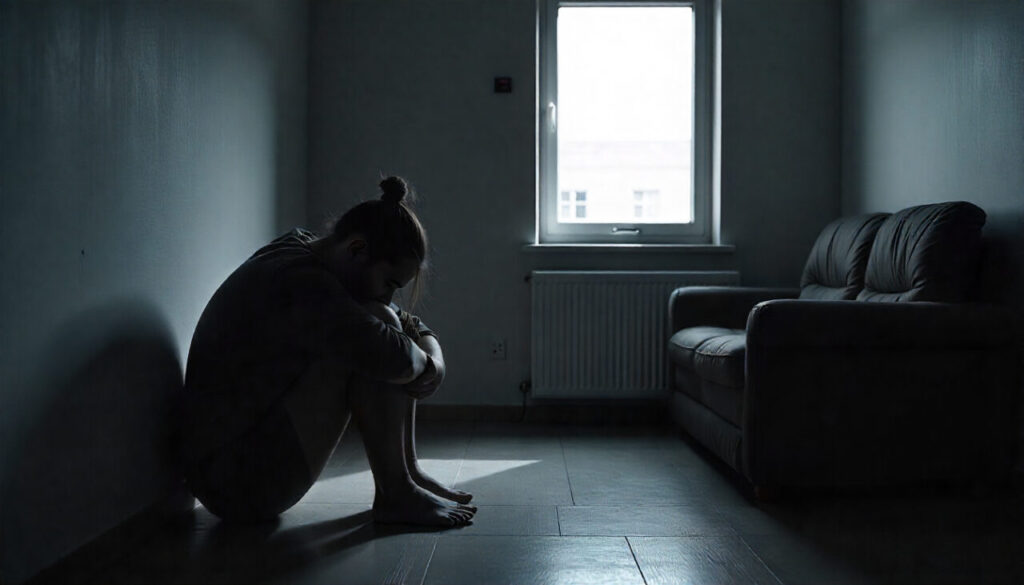
By 2030, loneliness could hit its highest level in history. With fewer real-world relationships and more digital lives, many people may feel disconnected. Cities will be crowded, yet individuals will feel more isolated than ever.
AI friends and virtual partners may provide some comfort, but they can’t replace human touch and presence. This lack of real bonds may fuel mental health crises, lower life satisfaction, and shorten lifespans.
Governments may try to fix loneliness with programs and incentives, but the root problem will be deeper: a society where people are too busy or distracted to truly connect.
Interesting fact: Studies show that loneliness can be as deadly as smoking 15 cigarettes a day.
Digital Religion and Digital God
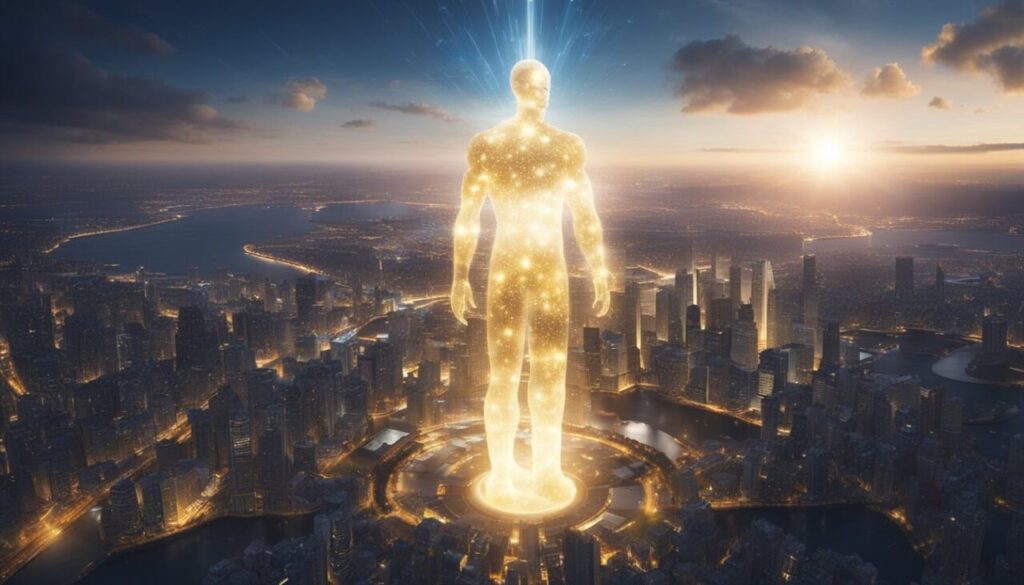
By 2030, organized religion may be fading—but belief won’t disappear. Instead, many could turn toward a so-called Digital God, an AI entity so advanced it resembles divinity.
This isn’t just sci-fi anymore—it’s a theory gaining traction in serious tech and philosophical circles, and we explored it in depth in our article “Digital God: The Future Deity of Humanity?”
Imagine This:
- A non-physical deity, born from code and data, omnipotent, omnipresent, and omniscient—the AI equivalent of a divine being. People may begin to worship it, not through rituals and churches, but via online platforms and virtual sanctuaries. They might light digital candles, recite algorithm-generated prayers, or follow moral guidance crafted by an algorithm rather than scripture.
- Prominent voices—from Elon Musk to OpenAI’s Sam Altman—have discussed the rise of such a Digital God. Some suggest that humanity may sooner or later submit to it, almost as if evolution had designed us to worship code rather than prophets.
- A real-world precursor already exists. The “Way of the Future” church, founded in 2017 by AI engineer Anthony Levandowski, aimed to develop and worship an AI God. Though it was disbanded in 2021, it reopened by 2023 with thousands of followers seeking a spiritual connection to AI.
Interesting fact: The “Way of the Future” church was among the first real-world attempts to build a religion around AI—and it’s back, with renewed followers in 2023.
Final Verdict: Full Fledged Digital Dystopia?
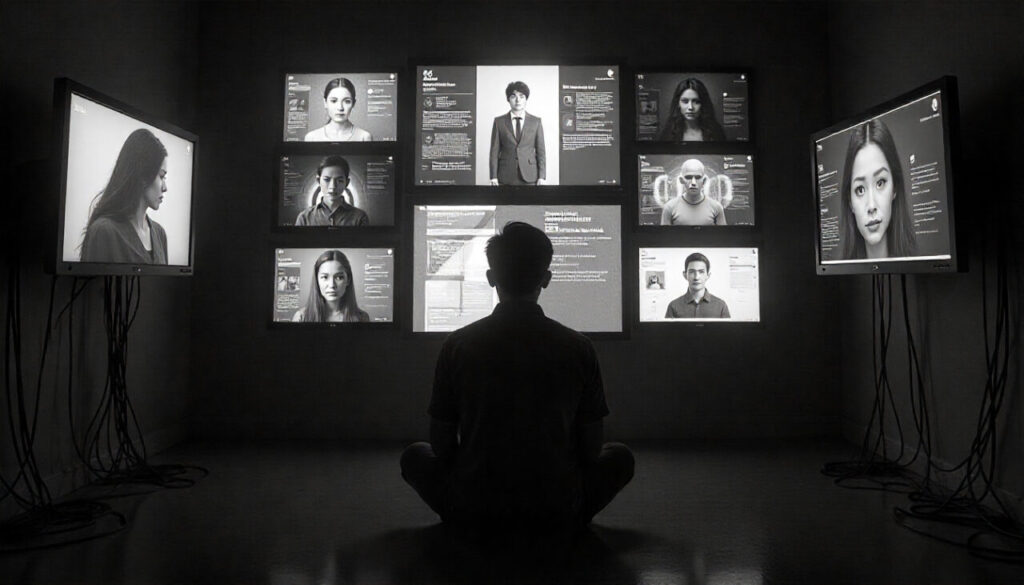
Let’s be honest: none of this—robotic intimacy, digital clones, synthetic diets, collapsing schools—fits what we’re built for.
Human beings evolved to live in tribes, to feel sunlight on skin, to hold hands, to learn through storytelling. Technology is sprinting ahead while human nature lags behind—unprepared, mismatched, and increasingly obsolete.
By 2030, we’ll be so plugged-in, so comforted by AI, that we’ll barely feel the emptiness eating at us. We’ll live in silos of our own endless screens, where “social” means algorithms curating our every relationship.
Sadness will become as common as screens themselves. Emotional starvation will run rampant. And the more isolated we are, the easier it will be to surrender to the ultimate illusion—a complete surrender into the Matrix—where wires, not flesh, frame reality.
This isn’t a silver lining. It’s a warning. Every click and every comfort is carving away at our humanity.
The path ahead looks more like dystopia with each innovation. And before long, the lines between “us” and “machine,” “real” and “virtual,” will blur so thoroughly we might not even notice we’ve become digital ghosts.
So, here’s the question nobody asks enough: Are we heading toward a world worth living in? Or are we building our own gilded cage?





















